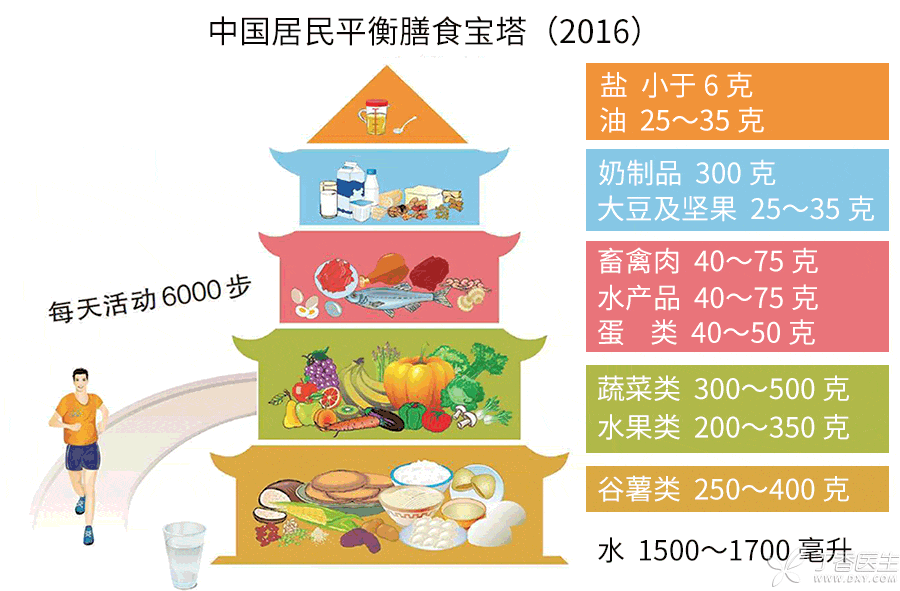
During the festival, many friends may take gifts to visit relatives and friends. There are many kinds of nutritional supplements in this gift.
Nutritionists on TV always say that there is no need to supplement other nutrients except scientific diet, but there are always people around us who recommend to you all kinds of bottles and cans…
This time, Dr. Clove decided to talk about nutritional supplements to help everyone eat healthily and be less fooled.
Nutritional supplements cannot cure diseases.
With regard to nutritional supplements, the Ministry of Health’s “Notice on Issues Related to the Management of Nutritional Supplements” reads as follows:
Products aimed at supplementing vitamins and minerals are included in nutrient supplements for management. Products made of nutrients such as dietary fiber, protein or amino acid, which meet the requirements of ordinary food, shall be managed according to ordinary food. With health care function, according to the relevant provisions of health food management.
It is true that some nutritional supplements belong to over-the-counter drugs of green OTC, but their function is also to prevent and treat nutritional deficiency diseases.
Generally speaking, there is no scientific evidence to prove that taking large quantities of vitamins or minerals can treat cancer or other chronic diseases.
For example:
Many people think that taking vitamin C can cure colds, but the 2013 Evidence-based Medical System Evaluation Database believes that taking vitamin C at ordinary times is only possible to shorten the course of colds slightly, but cannot prevent them.
How small is this range? An ordinary adult who has a cold for an average of 12 days per year may reduce it to 11 days per year due to taking vitamin C every day. However, the average child who catches a cold for 28 days a year may be shortened to 24 days.
Moreover, if vitamin C is taken after the symptoms of a cold appear, the course of the cold will not be shortened, nor will various symptoms of a cold be alleviated.
A balanced diet is more important than nutritional supplements.
For healthy people, the most priority should be to meet nutritional needs through a balanced diet.
Although supplements can provide some vitamins and minerals, However, the nutrition provided by food is comprehensive. For example, many natural foods not only contain vitamins and minerals, but also contain dietary fiber, polysaccharides, flavonoids, polyphenols and so on with very high nutritional value. At present, there is no supplement that can completely make up for the side effects caused by poor dietary structure.
As for how to calculate a balanced diet? Please refer to < < Chinese Residents’ Balanced Diet Pagoda > >

Who may need nutritional supplements?
For taking nutritional supplements, the internationally recognized principle is to take multivitamin and mineral preparations at reasonable doses based on a balanced diet and according to one’s own needs.
If someone tells you that anyone needs nutritional supplements, then you don’t have to believe him next.
Only people or patients under certain special conditions, because they absorb less nutrition, consume or lose too much nutrition, the general diet is difficult to meet their needs, should focus on the use of nutritional supplements.

There are 10 common ones:
1. Sometimes vitamins or minerals are used to meet nutrient needs or therapeutic purposes.
2. Women preparing for pregnancy need to supplement 400 ~ 800 micrograms of folic acid every day to reduce the risk of some serious congenital defects in the fetus.
3. Pregnant or lactating women need to increase some nutrition, especially folic acid and iron; If the intake of calcium-containing foods is not abundant, calcium should also be supplemented.
4. In order to reduce the loss of calcium in bones, climacteric women can take calcium supplements in an appropriate amount in addition to eating calcium-rich foods.
5. Dieters (who consume less than 1200 kilocalories a day) are advised to take multivitamin and mineral supplements because excessive diet control will lead to insufficient nutrient content in the food. However, in principle, unless supervised by a doctor, one should not choose a diet with very low calories.
6. Vegetarians need additional calcium, iron, vitamin B12 and vitamin D if they hardly eat dairy products and animal foods in their daily diet.
7. Vitamin D is often insufficient for newborns at the stage of rapid growth and development.
8. Older people and adults with little exposure to sunlight may need vitamin D supplements. Adults over 50 years of age are also recommended to take vitamin B12 from foods or supplements with abundant sources.
9. Health problems existing in some patients with malnutrition, such as digestive or liver diseases, will affect appetite or affect the absorption, utilization and excretion of nutrients; Surgery will increase the demand for certain nutrients. However, some drugs such as antacids, antibiotics, laxatives and diuretics will interfere with the absorption of nutrients.
10. People who often drink, smoke, are nervous and under great pressure in their lives. These people are not only prone to certain diseases, but also prone to loss of nutrients in their bodies under stress conditions. However, in addition to supplementing vitamins and minerals, the fundamental way is to quit these bad habits.
How do I know if I lack some kind of nutrition?
The above is just some principles for using nutritional supplement dosage. For us personally, it is more important to follow the specific situation of the individual to make specific analysis.
So, how do you know that you may lack what nutrition?
If you want to know that you lack what nutrition, it is difficult to determine by general examination. There are two practical methods:
1. Dietary evaluation
Go to the nutrition clinic and ask a nutritionist to evaluate your common recipes to see if there is a lack of certain nutrients. In addition, ask a nutritionist to make scientific adjustments to your recipes.
2. Anthropometry
According to specific physical signs or laboratory tests, the WHO Expert Committee recommends paying special attention to the following 13 aspects, namely hair, complexion, eyes, lips, tongue, teeth, gums, face (edema), skin, nails, cardiovascular system, digestive system and nervous system, in addition to height, weight, skinfold thickness and some biochemical tests.
By the way, don’t believe those who say they can give you several pages of nutrition analysis report with a little of your hair!
Only on the basis of balanced diet, sufficient exercise and pleasant mood, and appropriate use of nutritional supplements according to one’s own situation, is the right way to maintain health and prevent chronic diseases.
Nutritional supplements are useless. Yes, they may also have negative effects.
However, nutritional supplements also need to be supplemented in the right way. If they are not supplemented correctly, they may have negative effects. For example:
- If you take too high a daily dose of vitamin C (no more than 2,000 mg per day for adults), May cause kidney stones and other adverse reactions, As well as discomfort symptoms such as nausea and diarrhea, if pregnant women take large doses of vitamin A every day in the early stage, the risk of giving birth to deformed children will increase. Long-term administration of large doses of vitamin E will also cause various diseases, of which the more serious ones are thrombophlebitis and pulmonary embolism, as well as headache, abdominal pain, diarrhea, muscle weakness and visual impairment.
… …
Only on the basis of balanced diet, sufficient exercise and pleasant mood, and appropriate use of nutritional supplements according to one’s own situation, is the right way to maintain health and prevent chronic diseases.
